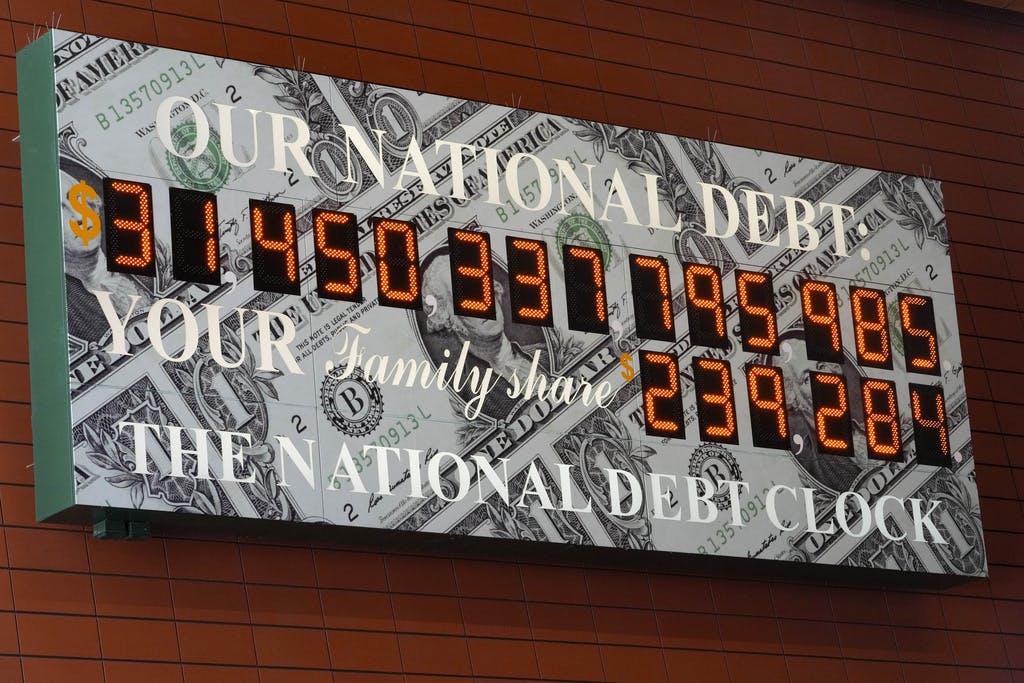As National Debt Skyrockets by Trillions, It Turns Out That Democrats Care Considerably Less Than Republicans
The largest partisan gap in Gallup polling is not over immigration, inflation, or the economy, but ‘federal spending and the budget deficit.’

America’s national debt is skyrocketing to historic levels, as the partisan divide over how much voters care about the issue is greater than ever.
By the end of fiscal 2025, federal debt held by the public will add up to $29.7 trillion, the Congressional Budget Office reports, exceeding America’s gross domestic product.
National debt is a responsibility shared by both of the presidential candidates, yet it’s much more of a concern for Republicans than Democrats, at least according to one recent survey.
The largest partisan gap in a March poll by Gallup is not over immigration, inflation, or the economy, but “federal spending and the budget deficit” — 79 percent of Republicans say they care “a great deal about it,” while only 30 percent of Democrats do.
“Overspending is a bipartisan problem,” a former George W. Bush administration official, Bruce Mehlman, tells the Sun. “Both the two Republicans and two Democrats in the 21st century have red ink on their hands.”
In a recent analysis, Mr. Mehlman attributes most of the expansion of federal debt to the presidents who have served in the White House since the beginning of the 21st Century.
Seen in that light, federal debt held by the public stood at $3.43 trillion at the end of 2000, according to Federal Reserve data. By the end of 2023, the debt had soared to its current level of $29.96 trillion.
Mr. Mehlman, who served as assistant secretary of commerce for technology policy under President George W. Bush, points to the policies put in place after the Clinton administration, which saw the global war on terror, the Great Recession, the Covid pandemic, the Ukraine war, and new technologies.
These challenges have prompted politicians on both sides of the aisle to increase federal spending and decrease taxes, he argues, growing the budget deficit.
“Unsustainable” is how many research institutions describe the current debt levels. Penn Wharton asserts that financial markets cannot sustain more than the next two decades of the deficits that are expected to accumulate under current American fiscal policy.
This quickly mounting debt load, economists warn, could strain economic growth, halt government spending on critical programs, and raise the chances of a financial crisis.
Do voters care? The federal deficit is not poised to be a driving political issue for voters, recent Gallup polling discloses. Immigration, inflation, and abortion, which draw stark lines of opinion and responsibility, are deemed the most important issues facing the country today.
Federal debt will be inherited by the next generation — yet young voters seem to care less about participating in the political process today. They are less likely to vote in 2024 than they did in 2020, according to a poll by Harvard’s Institute of Politics.
The drop is expected to hit 49 percent of young Americans, from 57 percent. Driving that lack of interest, pollsters say, is dissatisfaction with Messrs. Biden and Trump.
This article has been updated to clarify America’s projected level of federal debt held by the public at the end of fiscal 2025.

